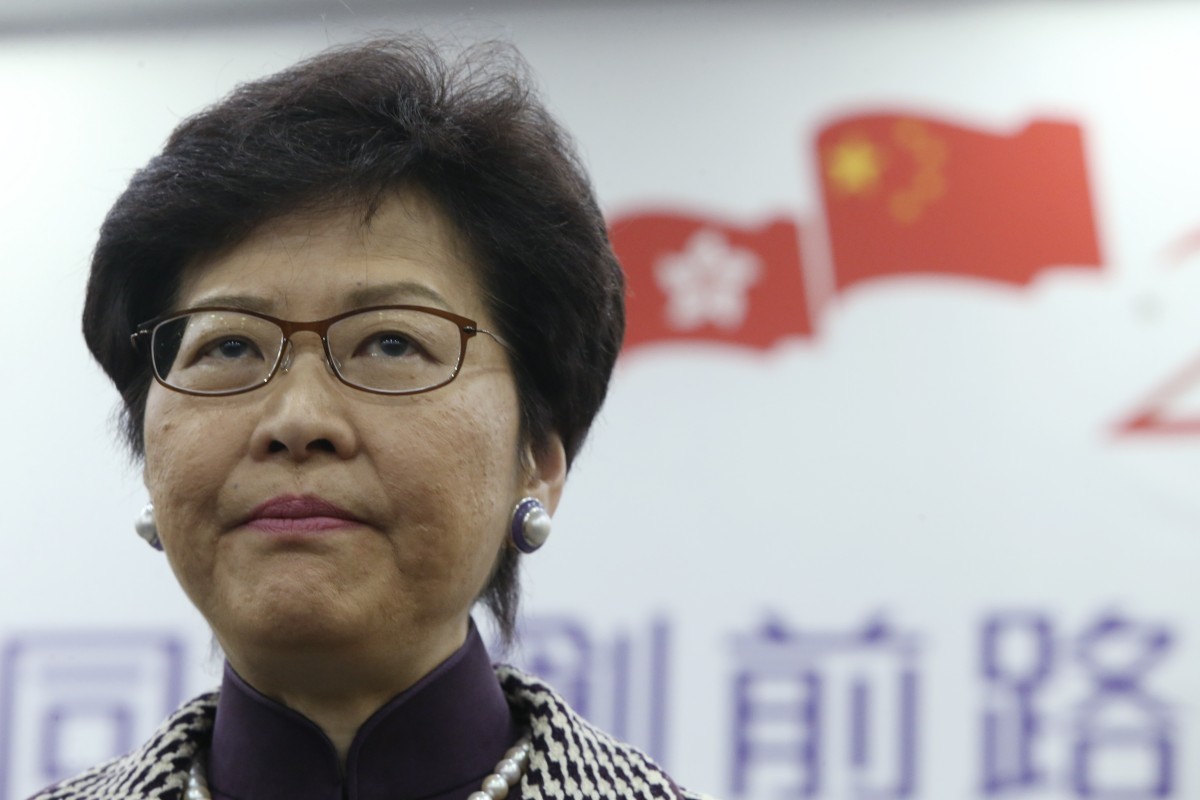
Carrie Lam is barking up wrong tree with her ‘patriotic propaganda’ proposal
The chief executive-elect’s 'I am Chinese' campaign won't work because it does not address the root cause of HK's problems

 Carrie Lam needs to tackle the real issues facing Hong Kong's youth.
Carrie Lam needs to tackle the real issues facing Hong Kong's youth.Chief executive-elect Carrie Lam Cheng Yuet-ngor has vowed to counter pro-independence forces by instilling “patriotic propaganda” in local students from kindergarten to secondary school. But she is barking up the wrong tree.
With her rebranded “national education”, Lam is trying to brainwash students instead of educating them about the “real” China. There are many reasons why some young Hongkongers support separatism. They don’t trust the Hong Kong or central governments because many policies introduced over the past decade have destroyed our core values and history.
Schemes such as the one-way permit, which allows 150 mainland residents to migrate to Hong Kong every day, are an attempt to marginalise locals, and Beijing gets to decide who is granted one. Outgoing chief executive Leung Chun-ying may describe those new immigrants as “the new backbone of the Hong Kong labour force”, but at the same time, he’s encouraging Hongkongers to move back to Guangdong to “explore new opportunities”. Relocating local talent to China while introducing unskilled immigrants to the city reduces our competitiveness, and provides a boost for mainland cities.
Additionally, the new immigrants are encouraged to be “good patriots”, and ignore any criticism of Beijing made by Hongkongers. They could also be persuaded to support controversial laws, such as Article 23.
Other policies, such as the use of Putonghua as the language of instruction in some local schools, is also a way to merge Hong Kong with the mainland. Forcing students to learn Putonghua is an attempt to stop Cantonese being passed on to the next generation. This gives Beijing a tighter grip over Hong Kong by weakening its unique cultural identity. Other local traditions, without a language to pass on the knowledge, can also be easily wiped out.
We can also see all signs of Hong Kong’s colonial past slowly being erased from the city, from the demolition of the Star Ferry Pier and Queen’s Pier to the attempts to cover the crown on post boxes by the Hong Kong Post. Monuments play an important role in passing on the city’s heritage to future generations, because they are a tangible reminder.
The list goes on, but the final straw has got to be China’s many attempts to interfere with Hong Kong’s internal affairs. Before the handover in 1997, China promised a “one country, two systems” policy, with 50 years of autonomy. However, after only 20 years, Beijing has openly engaged in activities that can be seen as them trying to get the upper hand, especially during elections. It’s not news that China’s Liaison Office in Hong Kong has publicly endorsed “patriotic” candidates to run for District and Legislative Council seats. On the other hand, student activist Edward Leung Tin-kei was barred from running in the 2016 Legco election due to his pro-independence stance.
To sum up, many young Hongkongers are seeking independence from China because their demands have fallen on deaf ears. They believe the “old-timers” are seriously out of touch with reality.
This is why Lam’s bid to nurture a sense of “I am Chinese” identity among youth won’t work. It does not target the root causes that have led to calls for separatism. Instead of standing up to Beijing and insisting that it does not interfere in Hong Kong affairs, Lam’s stubborn stance will only push the moderates to the radical pro-independence side, causing further unrest.
